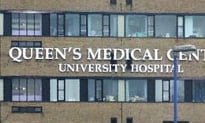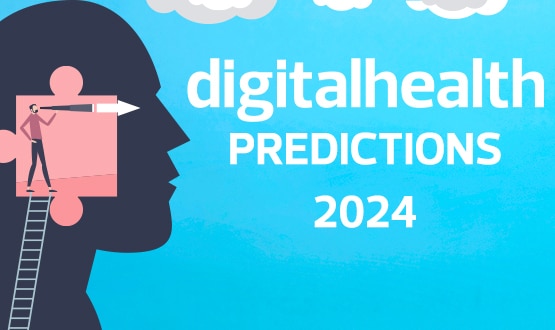Notts docs tracked by Wayward ‘sat nav’
- 28 January 2014

Doctors at Nottingham University Hospitals NHS Trust are being tracked by ‘sat nav’ during their evening and weekend shifts, to identify efficiency savings and improve patient care.
The Wayward project, which is run by researchers at the University of Nottingham, uses indoor navigation technology to study the movement of doctors during out-of-hours shifts. It is hoped the project will help reduce the distance doctors have to walk.
The tracking study will also examine the way junior doctors deal with patient care-related tasks compared to consultants.
Dr James Pinchin at Horizon Digital Economy Research, who leads the Wayward research project, said that hospitals operate “out of hours” 75% of the week, with a small number of doctors covering a lot of patients.
“Typically, during evenings and weekends in hospital there will be between five and seven doctors covering up to 24 wards,” he said.
“Consequently, these doctors are very busy people who are working in a stressful environment, performing complex tasks and making difficult decisions on how to prioritise patient care.
“Add in to the mix the fact that they are simultaneously navigating a large, often unfamiliar site to locate wards, patients, staff and equipment. This research is aimed at reducing doctor fatigue and increasing efficiency.”
In the pilot study, the staff are given devices which uses wi-fi signals and sensors to determine their movements around the hospital.
The study will look at how long it takes them to get from A to B and whether delays occur due to the time it takes to find locations and resources such as crash carts.
In 2011, Nottingham University Hospitals introduced Nervecentre’s ‘Hospital at Night’, communications system, which replaced the traditional ‘bleep system’.
It uses mobile devices to log requested tasks and track jobs that have been completed and is said to have reduced night-time clinical incidents by 70% at the trust.
Data from the Nervecentre system forms the basis for the Wayward project.
Dr Pinchin said he was interested in collecting data to understand how people plan their time and tasks at work.
“Hospital at Night is already generating a lot of data which we can use in this way. For example, we have already observed that senior staff may be better at prioritising their workload and that they maintain their level of performance throughout a night shift, performing the same number of tasks at 3am as they would at 10am,” he said.
“This type of information could be used to inform training for less experienced staff.”
The study is also assessing the potential usefulness of a wayfinding app called ‘Doctor Sat Nav’, which can be downloaded to the same mobile devices used for the Hospital at Night system.
It works like a sat-nav in a car, and would give doctors more accurate directions to relevant areas or resources.
The project explores possible solutions to national concerns about 24-hour staffing levels.
NHS England recently announced its proposal for senior doctors and key diagnostic tests to be available seven days a week to tackle the higher number of death rates at weekends.




